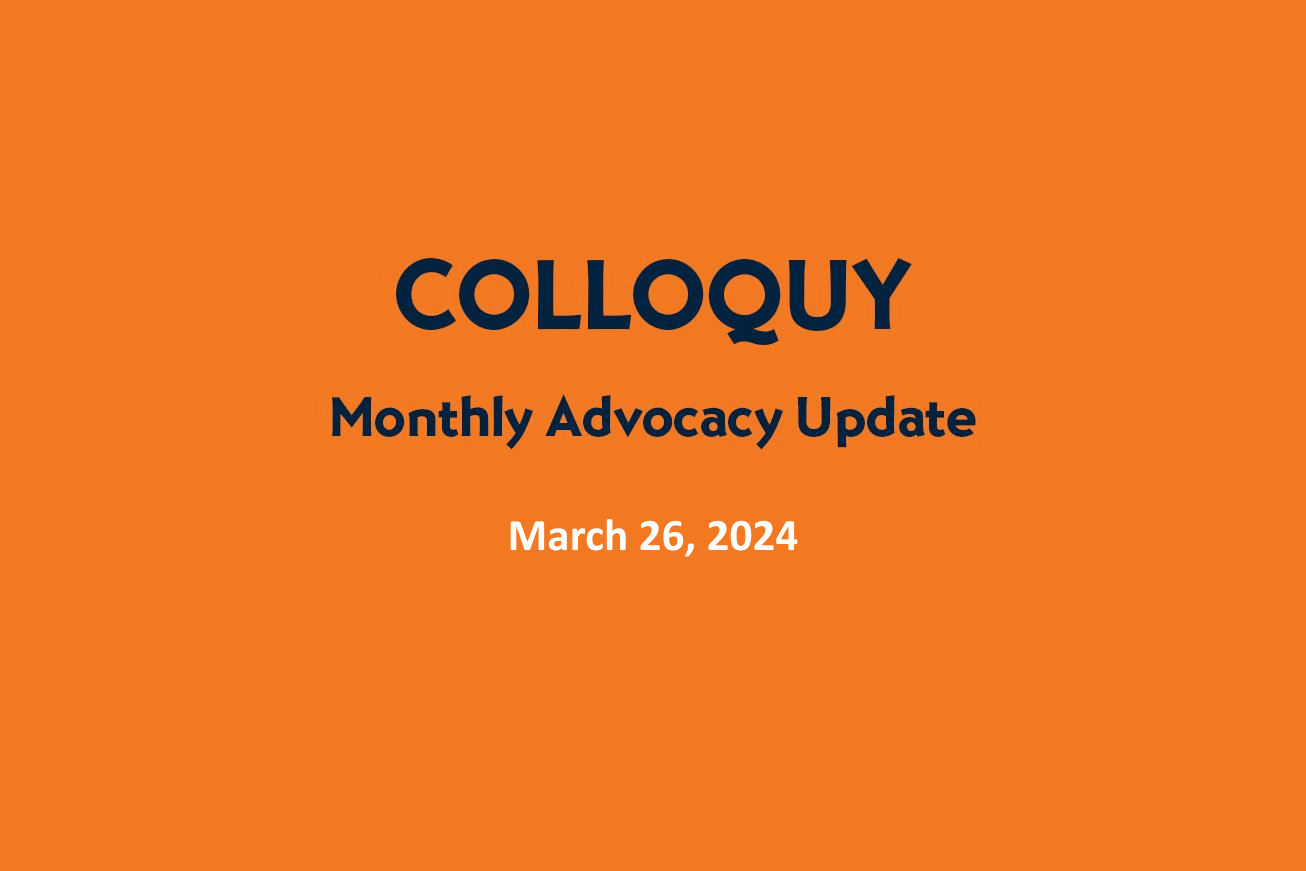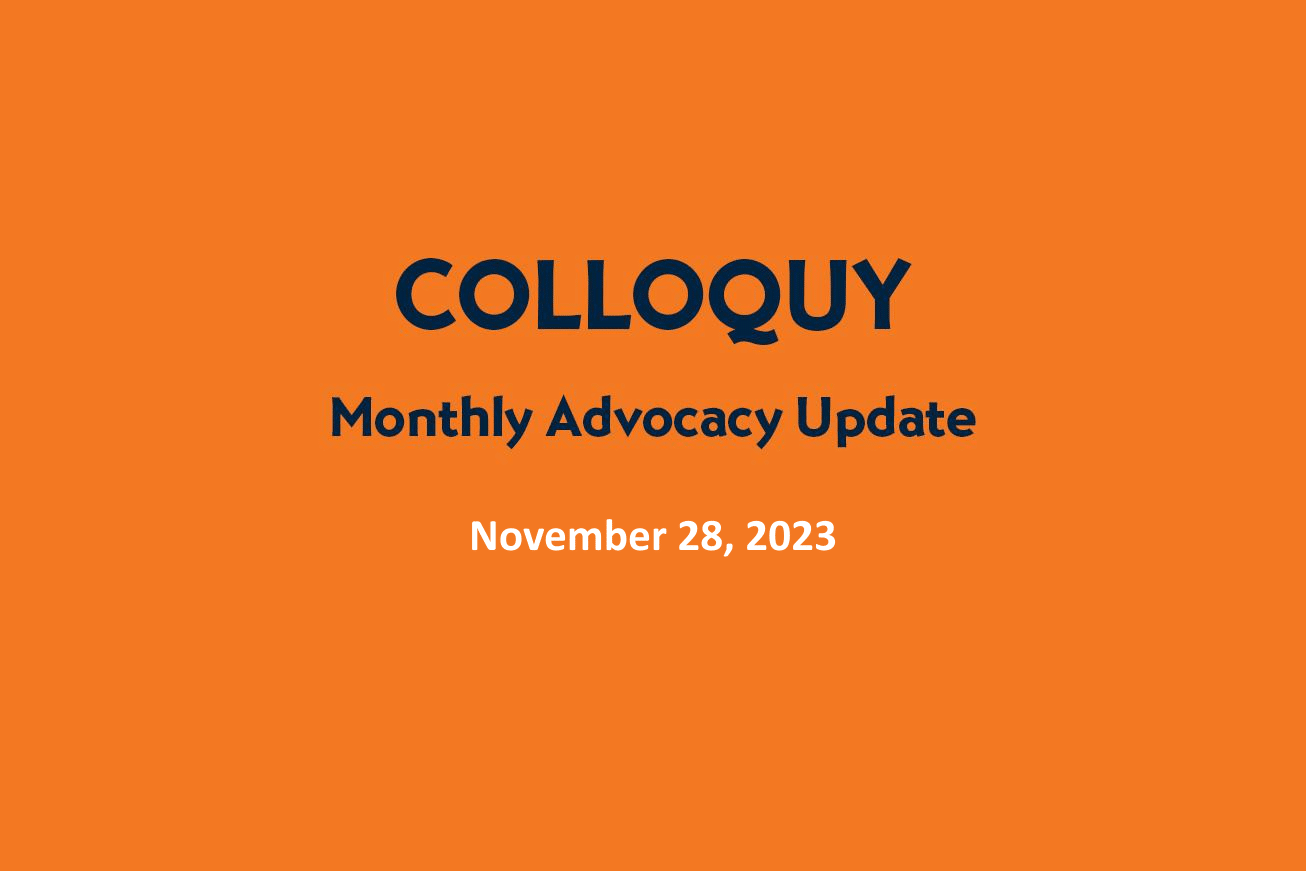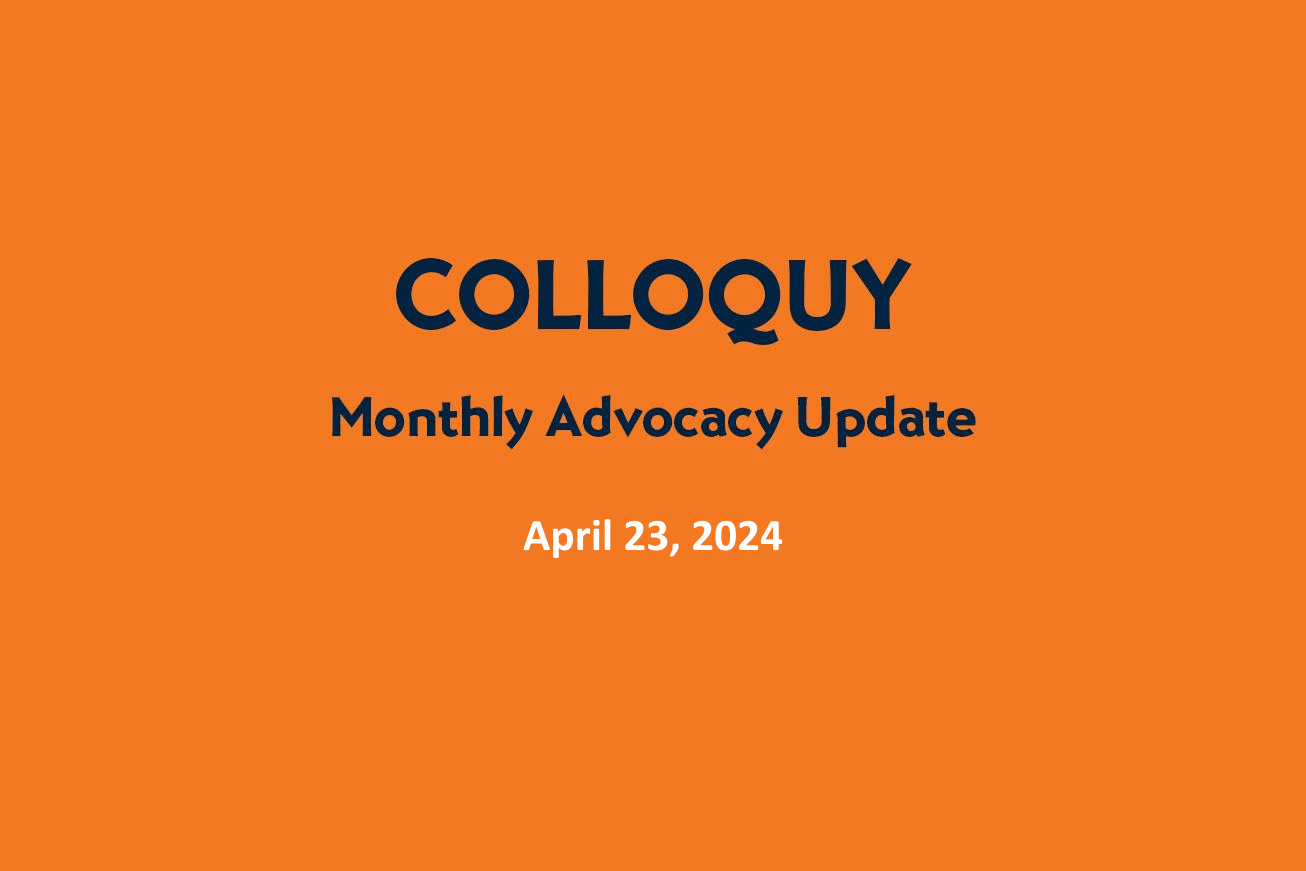
Advocacy Update, March 2024
Updates on the Federal Budget, Aging Services Testimony, Redistricting, and Direct Care Worker Shortage





Use our Resource Directory to get access to things like meal delivery, caregiving services, in-home help, and more.
Congress Averts a Government Shutdown
Congress once again avoided a government shutdown on Thursday by passing another continuing resolution (CR), a short-term funding bill that will keep the federal government financed at level funding. This is the third CR passed in order to avert a government shutdown since the original fiscal year 2024 budget deadline of October 1, 2023.
In this new proposed continuing resolution, funding for the departments of Agriculture, Energy, Veterans Affairs, Transportation, and Housing and Urban Development will expire on March 1st. On March 8th, funding will expire for the departments of Commerce, Justice, State, Defense, Homeland Security, Interior, Labor, Education, and Health and Human Services. The second deadline covers roughly 80 percent of the federal government, including funding for all Area Agencies on Aging in the U.S.
Whenever a budget is passed, House Speaker Mike Johnson (R-Louisiana) and Senate Majority Leader Charles E. Schumer (D-New York) have agreed to a $1.66 trillion maximum to finance the government for the 2024 fiscal year.
Metro-Detroit Districts for State Government to be Redrawn
In December, the U.S. District Court, Western District of Michigan, ruled the Independent Citizens Redistricting Commission (ICRC) created State House and Senate district maps violate the equal protection rights of Black voters. The ruling focuses on district maps drawn for the City of Detroit and nearby suburbs.
Under the ruling, the following districts must be redrawn:
The redraw of these seats will likely affect several neighboring districts:
Under an aggressive schedule released by the three-judge federal panel that originally struck down the metro-Detroit districts, the ICRC has until February 2nd to re-draft seven Detroit-area State House districts. The judges are hoping to have the new districts in place by March 29th, to give the public a chance to weigh in on them. This deadline only gives one month for candidates to file for the offices, as April 23rd is the filing deadline for candidates seeking to run in the August 2024 primary election. The federal judges have also lined up two “special masters” to review the ICRC’s map and draft an alternative plan as backup. New lines for six State Senate districts ruled unconstitutional by the court will come later, as the current districts will stay in place until Senate terms end in 2026.
The Senior Alliance’s Advocacy Priorities in 2024
This year, The Senior Alliance advocacy team will primarily be focusing their efforts on two issues. The first is an increase in funding for the Michigan Long Term Care Ombudsman (LTCO) program of $3 million to fund 33 new LTCO staff in Michigan. This will help the LTCO program to achieve and maintain a 1 to 2,000 Long Term Care Ombudsman staff-to-bed ratio across Michigan. Currently, the ratio is approximately 1 ombudsman for every 5,000 long-term care beds, a rate that varies by county but is far greater than the recommended average.
The second advocacy ask is an increase in the rates provided to MI Choice Medicaid Waiver Agents so they meet the current cost to operate the program. Right now, the rate is lower than Waiver Agents’ cost to operate the program, especially for high-needs cases.
The goal of our advocacy is for the legislature to increase the budget line item that funds the MI Choice Medicaid program so more people can be served through this resource.
Michigan’s Election Schedule in 2024
With the Democratic presidential primary this year is scheduled for February 27th. This will make Michigan the fifth state in the country to hold its presidential primary elections. The regular August primary will take place on August 6th this year. Finally, the November general election is slated for November 5th.
Those in the 13th State House District, which includes parts of Warren and Detroit, and 25th State House Districts, which includes Wayne and parts Westland, Dearborn Heights, and Canton Township, will have two additional elections to choose their new House members. The primary election to determine which candidate will represent each party will take place on January 30th, and on April 16th House District 13 and 25 will officially choose their representatives.
When Michigan voted yes on Ballot Proposal 2 in 2022, 9 days of early, in-person voting for all Michiganders was enshrined into the state constitution. This new early voting option will begin with the presidential primary in February. Voters can also elect to have an absentee ballot mailed to them, but must register for this with their municipal clerk. For more information on early and absentee voting, check with your local municipal clerk or visit this link.
The Michigan Legislature is Back in Session
The Michigan Legislature returned to session on January 10, 2024. With a 54-54 tie in the House after two Representatives, Lori Stone, D-Warren, and Kevin Coleman, D-Westland, won Mayoral elections, it remains to be seen whether any bills will make it through both chambers. New representatives will not be elected until April 16th, leaving the House in a tie for several months.
Several key pieces of legislation for aging advocates will need to pass through one or both chambers by the end of the year to avoid dying at the end of the year. These include the Attorney General’s Guardianship Reform bills (HB 4909-4912 and 5047), Michigan’s Prescription Drug Board (SB 483-485), and a bill to reform Adult Foster Care facilities (HB 4841) introduced by Representative Young (D-Detroit) in June.
Michigan is Halfway Through its Medicaid Redetermination Process
In December, Michigan reached the halfway point of its year-long Medicaid eligibility review for all individuals with the low-income health insurance. Medicaid eligibility has not been reviewed since the COVID-19 pandemic began in 2020. Nearly 1.5 million cases have been reviewed so far, with 450,000, or roughly one in three people, being dropped from the program since this redetermination process began.
The primary reason for lost coverage has been participants not returning their redetermination packet to the state. Others are falling off the program due to a loss of eligibility, such as being over the income or asset limit. Michigan has been averaging about 250,000 renewals every month since June of 2023.
The redetermination process is expected to be complete in May of this year. For more information about how the redetermination process is going in Michigan, click here.

Updates on the Federal Budget, Aging Services Testimony, Redistricting, and Direct Care Worker Shortage

Updates on the Federal Agencies Level Funded, Michigan Legislature Voting, Caregivers Act Introduced, Bill to Protect Vulnerable Adults, and our Advisory Council

Updates on the Senior Action Week, Michigan House Vacant Seats, State Budget, and Legislation Spotlight